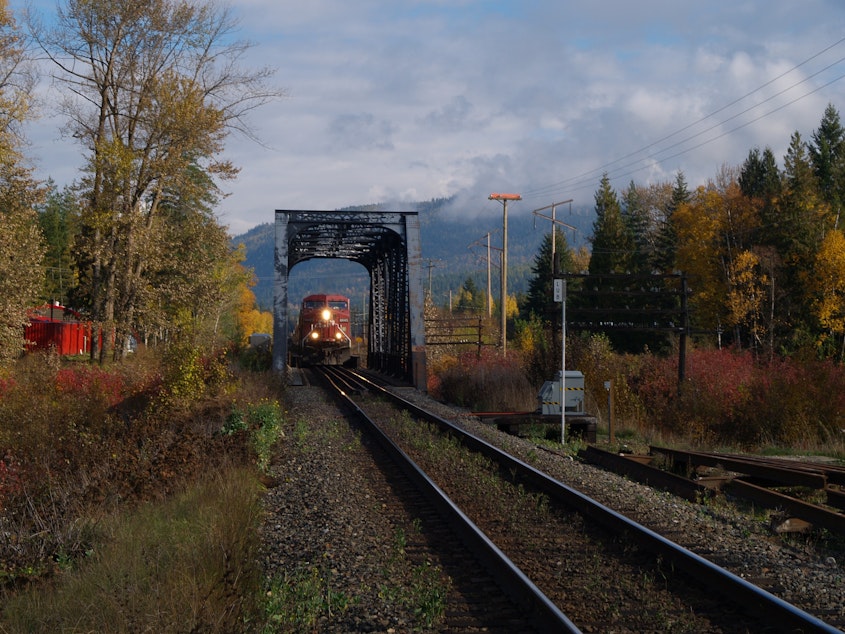Rail strike averted, but workers left without sick leave

On Thursday, the U.S. Senate voted to impose a labor agreement for rail workers. The measure now heads to President Biden to be signed.
It will include a 24% increase in wages over five years, more schedule flexibility, and one additional paid day off. But the measure doesn't include paid sick leave.
For the last three years, rail workers and national freight rail companies have been in contract negotiations around worker pay and paid sick leave.
In September, the Biden Administration brokered a tentative agreement between the groups.
But "tentative" is the key word there — the deal fell through.
"That tentative agreement included some pretty healthy financial increases, and did not include the paid sick leave that the unions have been asking for," said Liz Ford, a visiting assistant professor at the Seattle University School of Law and expert in labor and employment law.
After you reach a tentative agreement, the individual bargaining units have to ratify it.
Sponsored
In other words, the unions representing the rail workers and the freight companies they're negotiating with have to agree to the terms.
Most of the unions involved did — but not all of them.
"There are a handful that voted it down on the basis that it didn't include this sick leave. And by the time they did that, we're rolling into the holiday season. And those unions that voted no on the tentative agreement then were in a position to call a strike," Ford said.
On Wednesday, the U.S. House of Representatives passed legislation that would force a labor agreement, thus canceling the tentative strike. Today, the Senate also passed that legislation.
Congress can do that because of a unique labor law called the Railway Labor Act.
Sponsored
"That law allows for congressional intervention to avert a strike that could cause nationwide economic disaster," Ford said. "The House has voted to impose the tentative agreement on those four holdout unions."
The House also voted on a second bill, which would require seven days of sick leave as a term of that imposed contract.
The Senate did not pass that bill, meaning rail workers won't see seven days of paid leave.
"Railroad workers are in a kind of unique position," Ford added. "They have short-term disability, but they have nothing to pay for the occasional two days, three days, four days, of time that you might need to take care of yourself if you get Covid, or to take care of your kids if they need to go to the doctor."
This situation is sticky.
Sponsored
In a statement Tuesday, the Brotherhood of Maintenance of Way Employees, one of the unions involved, said passing legislation to enforce an agreement denies them the right to strike and will not fix the problems or concerns of railroad workers.
But how do you respect the right to strike without having a devastating impact on the economy?
"It's one of the reasons that the Railway Labor Act is this sort of specialized labor law. Because there's such a profound impact of a nationwide strike," Ford said.
The law is meant to act as a last option for imposing a contract. Most labor laws around collective bargaining have the government staying out of the interplay between unions and employers.
The last time the government intervened due to the Railway Labor Act was in 1992, 30 years ago.
Sponsored
"It doesn't happen often," Ford said. "And it is something that comes up all the time in the calculations about whether you strike. So there are different ways to work out that balance, and we're seeing one of the more difficult ways right now."
Editor's note: This story aired prior to the Senate's vote. Some information in the audio version of this story may now be outdated.





